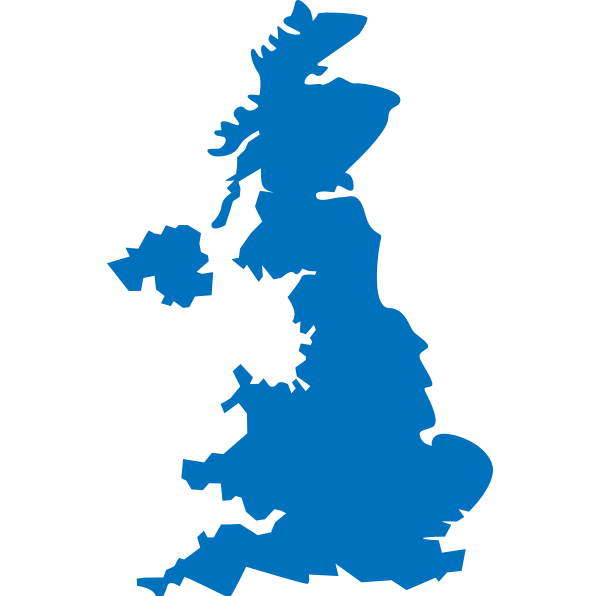MG Legal, Nationwide Personal Injury Solicitors. The team that put you first. Contact us for a free, no-obligation consultation: 01772 783314 or email at: injury@mglegal.co.uk
No Win No Fee Care Home Abuse Claims.
100% No Win No Fee Claims.
- Pay nothing if you lose.
When you work with MG Legal's personal injury solicitors, you get:

Free, no-obligation consultation with a specialist solicitor

The maximum financial compensation in your personal injury claim

A designated solicitor with up to 30 years of experience
Suffered a personal injury in the last 3 years? Call 01772 783314 Or, fill in your details and our personal injury solicitors will contact you within one working hour.
What is a care home abuse claim?
Care homes and nursing homes are often seen by families and the best and only option available to them to ensure the safety and care of their vulnerable and elderly loved ones. This is largely the case, and most residents in care homes are looked after, and cared for, by kind and skilled staff. However, in the instances where this does not occur, and staff act abusively or violently towards their residents, it can lead to vicious cycles of physical and mental abuse.
Situations of care home abuse claims are one of the most distressing and upsetting that our specialist abuse solicitors see. Injury, pain, and suffering being intentionally inflicted by a carer on an elderly or vulnerable victim is unthinkable, and many loved ones and family members cannot comprehend what has happened. As part of the healing process, many people choose to make a care home abuse claim on behalf of their loved one in order to receive financial compensation for the pain and suffering that they have gone through. This is done using a specialist abuse solicitor, such as MG Legal, and through a criminal assault claim.
How common is abuse in care homes?
A worrying new report has recently suggested that care home abuse is taking place in 99% of care homes in England. This report was compiled after a survey of 1,544 care home staff showed that abuse was recognised in a shocking 91 out of 92 care homes.
Some of these instances would legally be considered care home negligence rather than abuse, such as delayed care and residents not being given enough time to eat. However, many worrying instances included reports of physical and mental care home abuse.
In 2019 alone, 67,500 allegations of mistreatment were received by the care standards body CQC. This is a worrying statistic, which was an increase of 82% since the previous year. These statistics suggest a significant increase in care home abuse occurring in our care homes, and will be concerning to relatives and loved ones of care home residents nationwide.
No Win No Fee Compensation:
MG Legal's leading personal injury solicitors accept all personal injury claims on a "No Win, No Fee" basis, and have a success rate of over 99%.
Our team put your first, and work with care to achieve your financial compensation. Call us today on a free, no-obligation basis at: 01772 783314

Get in touch today to speak to a No Win No Fee Solicitor.
What counts as abuse in a care home abuse claim?
There is no official legal definition of what abuse is. Still, generally speaking, it is considered to be to treat somebody intentionally badly, cruelly, or violently. Abuse is often a pattern, occurring regularly or repeatedly over a period of time.
In a care home setting, abuse can manifest in a number of ways. These include:
Intentional physical assault- such as kicking, hitting, pushing
Sexual assault
Inappropriate physical restraint
Psychological abuse- including threats and intentionally humiliating actions
Why are people in care homes vulnerable to abuse?
According to professional policy research, older people staying in care homes are particularly vulnerable to abuse from staff ‘due to their dependencies related to cognitive and/or functional self-care challenges’. With the population living longer and healthier lives than ever before, the proportion of elderly people living to ages where they require extra help and care due to both physical and mental deterioration.
However, it is this physical and mental deterioration that makes them particularly vulnerable to all kinds of abuse. With this growing proportion of the population who require care and medical assistance, comes a growing demand for care workers and staff. Working as a care home assistant or a nursing home member of staff is a rewarding but difficult job, and one that has a notoriously high staff turnover. This staff turnover is considered to be an important factor in nursing home care quality and cases of care home abuse.
With staff shortages being common, the level of training and background checks that are done into new staff members can sometimes lack, and untrained and unvetted staff are left in charge of the care of vulnerable elderly people. It is this lack of regulation and needs for extra staff members that care home residents can be at-risk for care home abuse.
What is the difference between care home abuse and care home neglect?
Care home abuse can cover a wide range of actions, but the defining aspect is that the harmful actions are intentional. Care home neglect can be damaging, and cause avoidable injury or illness to residents, but it is usually unintentional, and caused by carelessness or inadequate training.
Instead, care home abuse is pain and suffering intentionally inflicted on the residents that staff are supposed to be caring for. These acts of abuse can lead to criminal injury claims, which are explained fully here.
What legal rights do care home residents have?
The Care Quality Commission, an independent regulator of health and social care in England, have set out the basic standards of care that care home residents should receive.
This includes:
Residents will be protected from the risk of abuse, and staff will respect their human rights.
Residents will be cared for in a clean environment where they are protected from the risk of infection.
Residents will get the medicines they need, when they need them, and in a safe way.
Residents will be cared for in a safe and accessible place.
Residents will not be harmed by unsafe or unsuitable equipment.
If you feel that a care home has breached these responsibilities in any way, through an act of intentional abuse, then you can make a care home abuse claim with a specialist solicitor. Contact MG Legal, here, to learn more.
Our straight-forward no win no fee claims process:

Free, no obligation consultation
MG Legal's specialist solicitors offer a free, no obligation consultation to all potential clients.

Start your no win no fee claim
We accept all claims on a no win no fee basis, and will begin building your claim the same day.

Hassle-free claims process
Your designated solicitor will be in regular contact, and keep you updated throughout the claims process.
What to do if you suspect your parent is being abused:
Whether you have recognised some of the signs of care home abuse, witnessed the care home abuse first hand, or heard of care home abuse from your parent or loved one themselves, you will want to make sure that the correct steps are made to bring an end to the abuse and to ensure that justice is brought for the abuser. You are not alone, and you should not feel any guilt or blame for the possible abuse that your relative is experiencing. When you made the decision to place your loved one in care, you did so with their best interests at heart, and under the conditions that they would receive the best level of care possible, and be in safe hands. If this is not the case, then you could find yourself asking what to do, and where to turn.
If you suspect that your parents are being subject to care home abuse, there are some steps that you can take to help your parent, and achieve the best outcome for their safety:
1. Find out how the injuries occurred- if your parent or loved one has suffered from injuries of any kind, and you are not 100% sure how the accident happened, you need to first establish what caused the injuries. For more help on how to do this, see here.
2. Report the abuse to the care home facility- no matter how you have been told about it, or how convincing you think your evidence is, any sign of abuse should be formally reported to the care home facility or the management. Learn more about how to do this here.
3. Take photos of any physical injuries- if your parent or loved one has sustained any physical injuries which could be signs of abuse, then make sure to obtain photographic evidence of the injuries. These photos can be used in any subsequent care home abuse claim.
4. Get in touch with a socialist care home abuse solicitor- If you have reason to believe that your parent or loved one is suffering from care home abuse of any kind, then you should contact a specialist care home abuse solicitor to discuss the next steps in making a claim.
Who can make a care home abuse claim?
Due to the nature of care homes, and the fact that they generally look after residents of an elderly or vulnerable nature, many care home abuse claims cannot be made by the victim themselves. This does not mean that a successful care home abuse claim cannot be made.
As a loved one or family member of the victim of care home abuse, you should be able to make a claim on their behalf, as what is known as a litigation friend. This process will require the help of a specialist solicitor, but will allow you to make the claim and instruct on it on the behalf of your elderly or disabled loved one. For more information on this process, and how it works, simply contact our specialist abuse solicitors, here, for a free, no-obligation discussion.
Who can I make a care home abuse claim against?
In care home abuse claims of an intentional physical or sexual nature, then the care home abuse claim will be made against the employer of the employee, or employees, who inflicted the abuse.
It is not necessary to prove any reliability or negligence on the employer, but simply to prove that the abuse took place, and that their employee was responsible.
Why choose MG Legal:

No Win No Fee Guarantee.

We are the experts.

Free, no obligation advice.

Success rate of over 99%.
How long do I have to make a care home abuse claim?
If you are making a care home abuse claim for a physical injury or assault, then you have two years from the date at which the assault occurred, or the date that you were aware of the injuries arising from an assault, in which to make a criminal injury claim for personal injury compensation. These claims are different to standard injury claims from accidents and falls, and are done through a different process. Because of this, they should be handled by a specialist solicitor, such as MG Legal. For more information on the process, or how we can help, contact our team for a no-obligation discussion with a specialist solicitor.
If you are making a claim for another kind of abuse in a care home, then subject to the 1980 Limitation Act you have 3 years from the date of injury, or the date that you became aware of the injuries in which to pursue a claim for financial compensation.
If you are making a care home abuse claim on behalf of someone with limited mental capacity, then the rules can be different. Simply get in touch with us here for a hassle-free way to determine the time limits imposed on your particular care home abuse claim.
How can MG Legal help with my care home abuse claim?
Here at MG Legal, our specialist abuse solicitors are experts in compensation claims just like yours, and have over 30 years of experience in similar claims. We are a small team of dedicated solicitors, who work closely with out clients to achieve the best outcome and maximum financial compensation for their claims.
We know that the decision to make a care home abuse claim is not an easy one, and that discussion of the abuse can be difficult and distressing. Because of this, we are always happy to adapt to our clients, and correspond with them in a way that makes them feel most comfortable. This could be via email, over the phone, in our offices, or through a home visit in the comfort of the client’s own home.
From the first time you get in touch with our team, you will be appointed a designated personal injury solicitor who will handle your NO WIN NO FEE claim throughout the process. This solicitor will know you and your claim, and will be at the other end of the phone to answer any questions or queries that you have at any point.
Our team have a success rate of over 99% in all of the claims that we take on, so you can rest assured that your care home abuse claim is in good hands, and is being made with a reliable, expert solicitor.
For more information on our team, and how we can help with your care home abuse claim, simply get in touch with us, here, or by email at enquiries@mglegal.co.uk for a free, no-obligation discussion of your potential claim.
No Win No Fee Personal Injury Claims Across England and Wales:
No matter where you are injured across England and Wales, MG Legal's Personal Injury Solicitors are here to help you to achieve the financial compensation that you deserve.
For a free, no-obligation consultation with a personal injury solicitor, contact us online here. Or give us a call on 01772 783314

Free Consultation

No Win No Fee Claims

Decades of Experience

Nationwide Services

Multiple Office Locations

Free Local Medical






